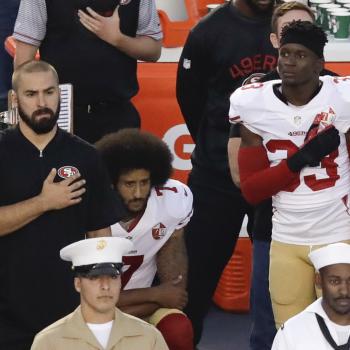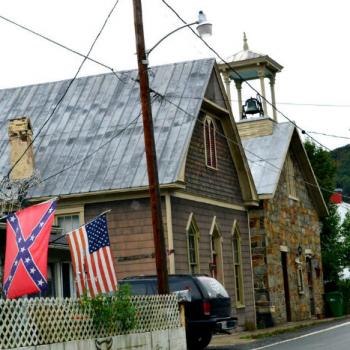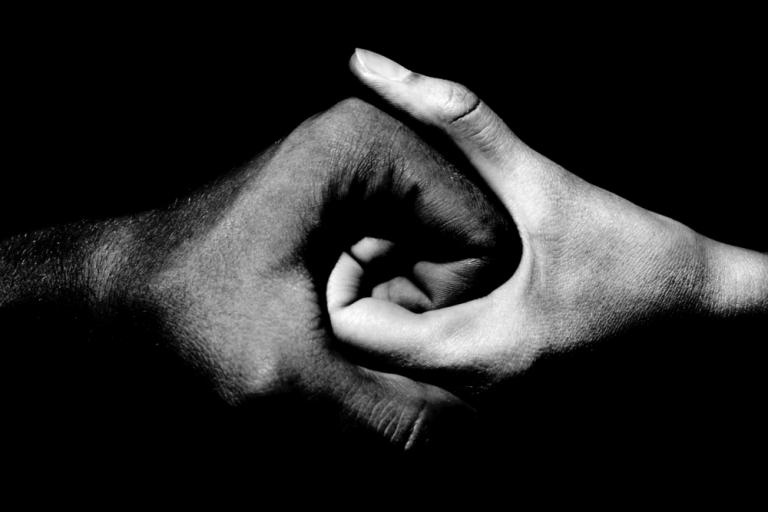By Jyl Hall Smith.
It is abundantly clear that Christians have divergent opinions on last week’s Supreme Court rulings regarding gay marriage and the Affordable Care Act. However, what becomes unclear in these times is how much Americans have in common in their political views. Pew research did a 25-year study, published in 2012, on trends in American values. They found that independents are the largest voting block at 38 percent, and that half of all independents, Democrats, and Republicans consider themselves moderate. Forty-four percent of Americans strongly support increasing the minimum wage and nearly two-thirds of Americans (65 percent) say that most poor people in the U.S. work but are unable to earn enough money. In twenty-five years, the public’s ideological balance has changed very little.
Pew also found that up to 80 percent of Americans identify as Christian. Half (50 percent) of Democrats, 60 percent of Independents, and 83 percent of Republicans agree that prayer is personally very important, never doubt God’s existence, and express belief in a Judgment Day. Unfortunately, according to the loudest voices in the public square (the media and Congress) it would seem that the American church struggles to agree on anything at all. Leadership may be divided, but they do not represent the majority of Americans. This charts show that the Congress is more polarized then ever. Church going folk, and their Facebook friends, may believe that Americans are at impasse politically. Happily, this is not the case on many issues.
So, where are the voices to represent the majority interests? This vacuum of leadership is poignantly illustrated in the discussions of last week. The Trans-Pacific Partnership (TPP) was approved by a fast track last week and was swiftly buried under the more newsworthy items of the two major Supreme Court rulings. TPP is NAFTA on steroids. This ruling will further push many more individuals worldwide into poverty, give corporations more rights, export tens of thousands of American jobs, and will exploit those in desperate poverty—desperate enough to work for 60 cents an hour in developing Asian nations. Both Democrats and Republicans voted this measure in equally. Though they constantly fight each other’s version of policies, both parties are increasingly conservative fiscally, specifically when it comes to big money.
It cannot be a coincidence that this bill was timed to coincide with the events of the week, when liberals would be too distracted by the court ruling on gay marriage and conservatives would be distracted both by the ruling on gay marriage and the fearful rhetoric on the economically destructive implications of the Affordable Care Act ruling. (Supposed economic losses that would occur from regulating health insurance have been found to be factually inaccurate.)
The average American may care about gay marriage, but the majority of the world does not find it relevant to putting food on the table. A society that makes people poor, economically or morally, is an unjust society. It should be headlines news for every American Christian that one in five children are at risk of going to bed hungry in the richest nation in history. God does care about sexual politics, but, if we are to take scriptures seriously, we must acknowledge that God also really cares about the poor.
The culture war in America is having a devastating effect on the lives of the average citizens around the globe. Where are the leaders like Roosevelt or Truman, who had the ability to build bridges as well as consider the greater good? In a vacuum of leadership, options like the Tea Party become appealing to some, but this theory is tactically unviable in today’s world. Politically moderate American Christians have common values in regards to foreign aid, economics, good governance, healthcare, education, poverty reduction, gender equality, disaster preparedness, infrastructure, economics, human rights, the environment and related issues. It is time moderates voices are heard on all of the issues we care about.
Jyl Hall Smith is a PhD candidate at Asbury Theological Seminary in Intercultural Studies, concentrating in Development and Public Theology. She worked in the Development field for fifteen years, in such organizations as World Vision, World Relief, and the Congressional Hunger Center.












